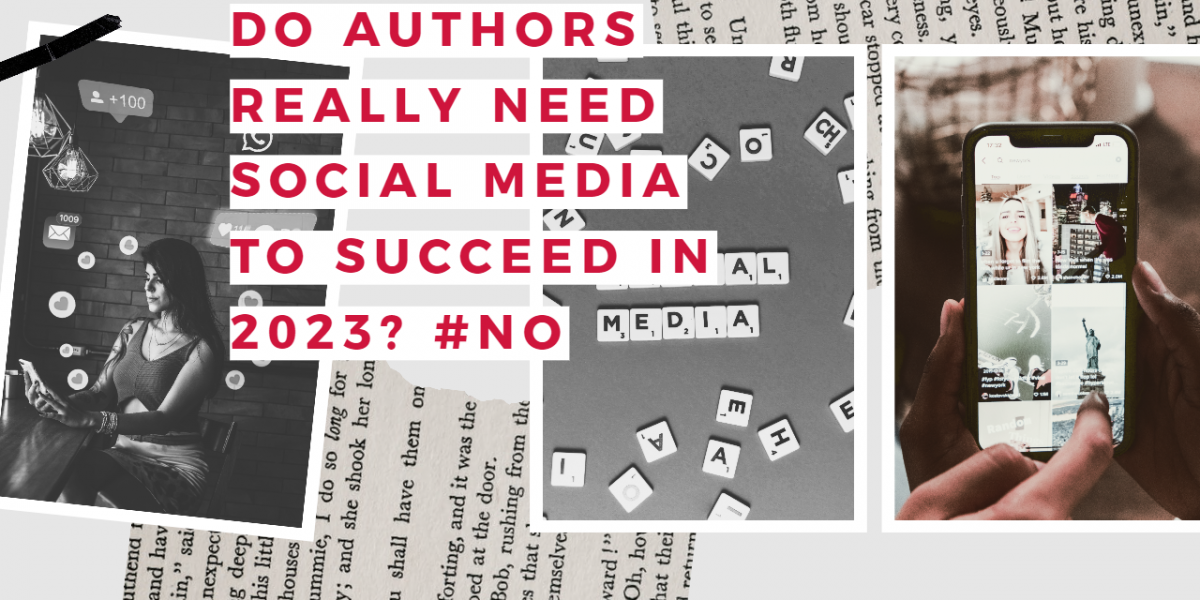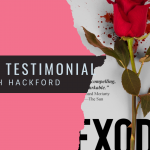
The Benefits of Social Media for (Most) Authors
There’s no denying that social media can and does benefit a whole heap of authors (but not necessarily all authors, as we’ll soon discover), across all genres, in a variety of ways:
Increased Visibility: One of the most significant benefits of using social media as an author is the potential to reach a vast and global audience at the click of a button and for free. Platforms like X and Instagram, among others, allow authors to connect with readers, fellow writers, and literary influencers from around the world in a matter of minutes.
Direct Engagement: Social media provides authors with the opportunity to engage directly with their readers. They can respond quickly and easily to comments and questions, and interact with potential readers directly.
Promotional Prowess: Social media has been likened to an author’s own free advertising platform, and to some degree this is true. It enables authors to share updates about their latest books, post excerpts and run giveaways, or give reviews, for example, without spending a penny on book marketing, PR and social media advertising (which we’ll cover in another post).
Market Research and Networking: These two benefits apply primarily to self-published authors, who can use social media to gain valuable insights into reader preferences, market demands, price points and consumer expectations. They can also use it to connect with other professionals in the industry, including agents, publishers, and fellow authors. Networking can open doors to collaborations, book deals and, for those at the start of their writing journey, invaluable advice.
SEO: Social media can offer several benefits to authors in terms of SEO (Search Engine Optimization) and inbound links to their websites. By promoting their website content on social media, authors can drive more traffic to their sites. And building a loyal and engaged social media following can lead to increased website visits as users are more likely to click through to an author’s site. Consistently sharing valuable and relevant content on social media, meanwhile, can establish an author as an authority in their niche or genre. Google tends to favour authoritative websites in search rankings, so this can positively impact Google rankings. On this point, social media posts that link to an author’s website can generate valuable inbound links. These links contribute to the website’s backlink profile, which can improve its SEO rankings.

Whatever the ‘experts’ may try and tell you (and sell you), authors should not feel coerced into using social media.
– Social media use should be an enjoyable experience, not a bind.
The Drawbacks of Social Media for (Some) Authors
On paper, the benefits of social media for all authors are therefore clear. But in the real world, there are legitimate reasons why some authors may still be hesitant to embrace social media and why, for others, social media is a complete non-starter. Let’s take a look at a few of the most common reasons for this:
Ethical Concerns: Not everyone sees social media use, or social media companies more specifically, as a positive thing and purposefully boycott it for ethical reasons. Some believe that social platforms are failing to create safe and inclusive online spaces and are instead fostering online harassment and hate speech. Others feel strongly about the link between social media use and addiction and the negative impacts on mental health. And others still are concerned about the rising problem of misinformation, digital manipulation and personal data breaches, and view social platforms as a primary driver and culprit. Social media use can also exacerbate inequalities as not everyone has equal access to the internet or digital literacy. But by far the biggest reason why people boycott social media is because they’re dissatisfied with the policies or actions of specific social media companies or their owners; this piece on Le Monde is a great read on this point.
Negative Feedback and Trolling: Authors, like many other creators and professionals, may be concerned about receiving unwarranted negative feedback about their work on social media platforms – and who can blame them? Negative feedback can be emotionally distressing, especially when it is harsh, personal, or mean-spirited. Authors invest time, effort, and passion into their work, so criticism can feel like a personal attack. Receiving negative feedback, especially when it’s public and visible to others, can also erode an author’s confidence in their writing abilities. It may make them doubt themselves and their creative process. In extreme cases, authors may receive not just negative feedback but also harassment or online abuse. This candid first-person piece by the wonderful YA author Louise O’Neill on Stylist says it all.
Negative feedback can take its toll in more ways than one. Authors often have a public persona, and negative feedback can affect how they are perceived by their readers and peers. They may worry that negative comments will damage their reputation. Negative reviews and feedback can also impact book sales, as potential readers may be discouraged from purchasing a book with poor reviews. Authors may fear that a negative reception of one work could harm their overall writing career.
Overwhelming and Time-Consuming: Managing a single social media account can be a time-consuming process. Crafting engaging posts, responding to comments, and staying active on multiple platforms can eat into valuable writing time and, for many, become overwhelming, especially for those who are not tech-savvy.
Fear of Missing Out: The fear of missing out, or FOMO, is a powerful psychological phenomenon that drives many people to use social media for the simple reason of staying connected and not missing out on what others are doing. Conversely, it is also the FOMO that stops some people from using social media in the first place; by not using social media, they avoid the FOMO and the pressures that come with it.
Are there Alternatives to Social Media for Authors?
We’ve explored the benefits of social media for authors, and we’ve seen some of the reasons why authors avoid it. Is there a middle ground?
While social media may seem like the dominant player in book promotion, there are alternative strategies that authors can consider. One such approach is building an SEO-friendly author website or blog – ie, one that ranks on Google for key search terms related to the author or her book. These platforms provide authors with complete control over their online presence, allowing them to showcase their books, share their writing journey (to whatever extent they feel comfortable), and engage with readers in a less immediate and pressurised manner. Email newsletters also offer a direct line of communication with readers. By offering exclusive content, behind-the-scenes insights, and personalised updates, authors can cultivate a loyal subscriber base that is genuinely interested in their work. Unlike the ever-changing algorithms of social media, email newsletters are not subject to the whims of a digital platform or its owner.
Rather than an all-or-nothing approach, authors can also consider a balanced strategy that acknowledges the benefits of social media while addressing their concerns. For instance, focusing on visual platforms like Instagram for sharing book covers or using X to engage in literary discussions can make the social media experience more enjoyable and purposeful and less stressful.
A Summary
Whatever the ‘experts’ may try and tell you (and sell you), authors should not feel coerced into using social media. Yes, social media platforms can be useful for some authors and these benefits are well documented. But there are a variety of alternative solutions that also enable authors to engage with readers, build new fan bases, and boost sales.
It is my view (and one shared by Palamedes) that social media use for everyone – authors included – should be an enjoyable experience rather than a bind. If it feels that way then walk away and concentrate on something more positive…like writing.




